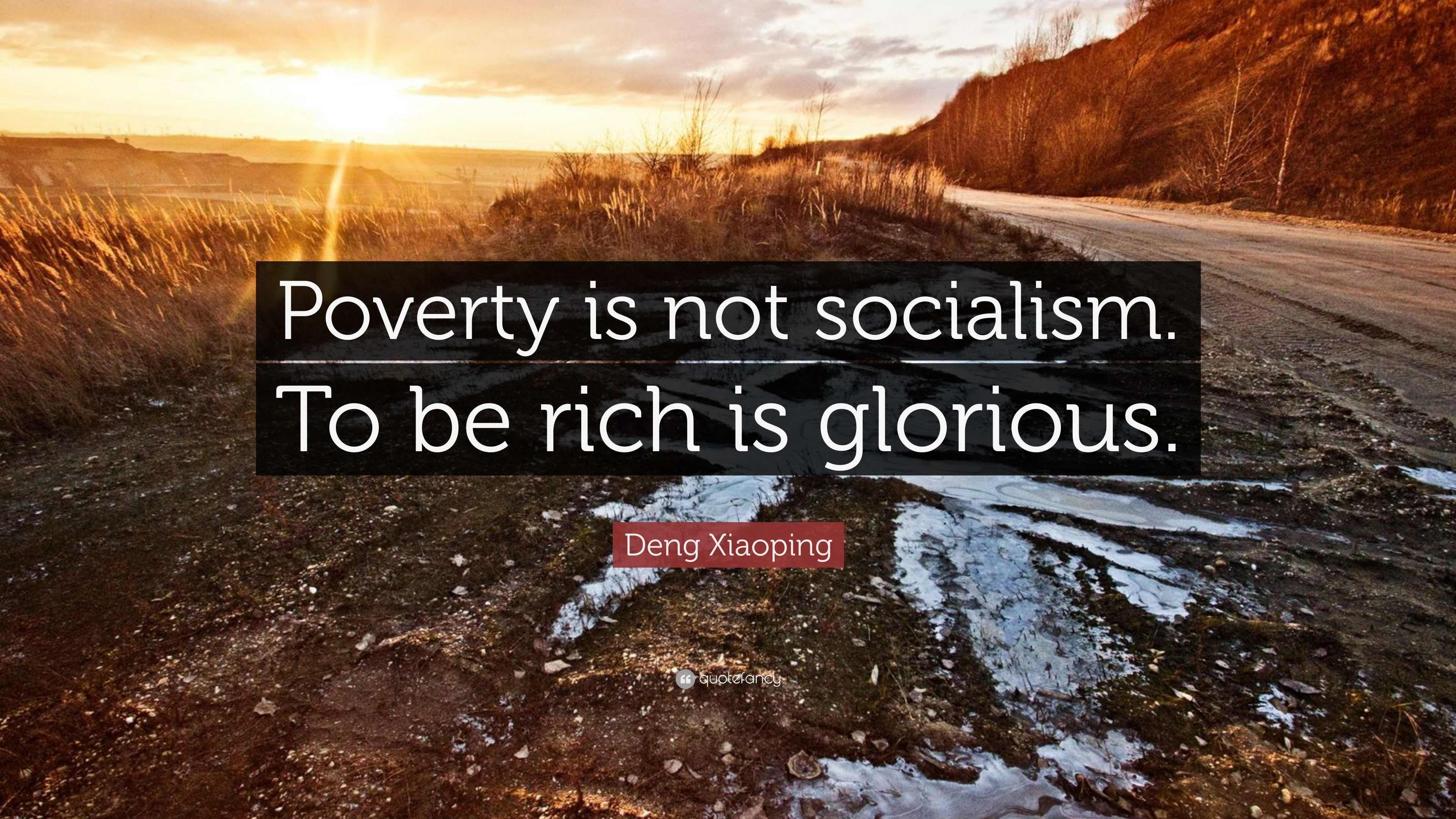

Jul
First and foremost, it’s important to make it clear that no, there’s no such thing as “communism” in China, nor has there ever actually been communism anywhere else according to the definition(s) of Karl Marx, Friedrich Engels et al. because in the equation the thinkers in question envisioned, communism was the final stage… and we never got there.
To put it differently, their views revolved around the fact that capitalism would inevitably collapse, with socialism taking over and the state becoming far more involved in matters of the economy, by for example taking over the means of production. Eventually, they predicted that things would work out so well that the state would no longer be necessary, as socialism ends up being replaced by communism. In other words, communism was envisioned as the stateless society which would eventually emerge and… well, that just didn’t happen.
As such, while the People’s Republic of China is run by the COMMUNIST Party of China, we don’t have communism in China but rather so-called socialism with Chinese characteristics, which I will try to briefly explain. The same way, if Marx or Engels would return from the grave and we were to ask them the same question about the Soviet Union or other “communist” nations, they would tell us the same thing: what those countries had was socialism, not communism.
That being stated, what is socialism with Chinese characteristics anyway?
One might say the term had its origin in the early 50s up until 1957, when even Mao Zedong acknowledged that reforms were necessary in light of the fact that more wealth needs to be created in China before transitioning to a more egalitarian system. In other words, it was considered that China was in the primary stage of socialism. However, Mao Zedong didn’t really take things very far from there and it is during the Deng Xiaoping era that the term really started shining.
More specifically, Deng Xiaoping was far more willing than his predecessors to embrace an economic growth model that was let’s say more market-oriented rather than ideologically rigid. He famously stated that it doesn’t matter if a cat is black or white, as long as it catches mice. At the same time, however, the Communist Party of China was (and still is) in charge and this did come with various ideological constraints. As such, “socialism with Chinese characteristics” became a very appealing middle ground.
Deng Xiaoping did not adhere to the principle that a market economy is strictly something one should expect in a capitalist framework, nor did he believe that planning was something strictly limited to socialism. As such, he was a lot more ideologically flexible and had no issues imagining a socialist framework in which market economy elements play an essential role.
But can one reconcile ideas such as private ownership and private initiative with the views of Karl Marx and Friedrich Engels? Well… yes, the Chinese have done just that. Their interpretation (and the official position of the Communist Party of China) is that while let’s say private property is indeed considered non-socialist, it’s not something that undermines socialism and promotes capitalism. As per this rationale, Marx and Engels were not of the opinion that private property needs to be abolished right away but rather than this needs to be done when the right conditions present themselves and gradually, through measures such as high inheritance taxes, compulsory bond purchases and so on. This view can indeed be considered contradictory to Mao’s perspective, that China can advance all the way to communism by bypassing capitalism.
What about the real-world situation? As strange as it may sound, quite a few analysts would recommend replacing “socialism with Chinese characteristics” with “capitalism with Chinese characteristics” because at this point in time, China can be considered more capitalist than let’s say the European Union in certain respects related to the ease of doing business, for example.
At the end of the day, the equation is far too complex in today’s economic landscape for just one word or expression to describe the reality behind the economics of a certain nation in an accurate manner. This is why adding real-world business experience to the mix, right alongside the academic dimension, is a must. As an entity with a significant presence in China as well as experience across multiple jurisdictions, ChinaFund.com is here to provide just that!
